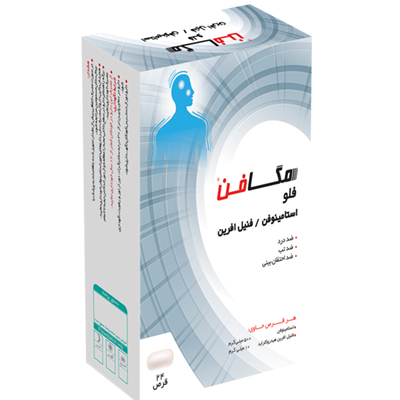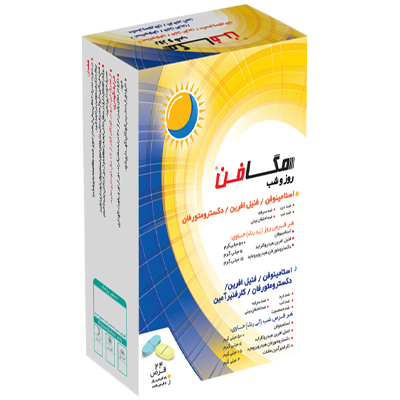In today's stressful world, our skin is exposed every day not only to pollution and environmental factors, but also to a relentless onslaught of psychological stress. One of the complex and worrying reactions that the body displays to these factors is the emergence of a disease called psoriasis, an inflammatory, chronic and sometimes debilitating disorder that overshadows a person's life in all aspects.
You may be asking yourself: What causes psoriasis? What causes the skin, the body's protective shield, to suddenly become its own enemy? Why do some people develop the disease while others never experience it? Answering these questions requires understanding the internal complexities of the body, the immune system, and the underlying genetic and environmental factors.
This condition appears on the surface as just red, scaly, and sometimes painful patches on the skin, but deep down, it has a deeper story; a story of an abnormal immune system response, genetic interaction, chronic stress, and metabolic disorders.
Possible causes of psoriasis and the role of each factor in its exacerbation
The cause of psoriasis is not a simple one; it is a combination of various factors that fit together like a complex puzzle. Stress, viral or bacterial infections, taking certain medications, hormonal changes, and even digestive disorders can act as triggers to activate the disease. In the meantime, the role of genetics is also undeniable; people with a family history of psoriasis are more susceptible to developing it.
On the other hand, the body of those affected responds by increasing the rate of skin cell production; a process that normally takes 28 days, in psoriasis patients, can happen in just a few days. The result? Dead cells build up, creating scaly lesions, redness, itching and, in severe cases, bone or joint pain.
But what causes psoriasis, if we want to look at it from a more fundamental perspective? The answer to this question requires dissecting the role of the body's immune system and the development of abnormal inflammatory responses. In psoriasis, the body mistakenly attacks healthy skin cells, which causes inflammation, increased growth of epidermal cells, and the appearance of visible symptoms of the disease.
A condition that affects not only the person's body, but also their psyche and social relationships. Many patients are harmed by the worried or even judgmental looks of those around them; their self-confidence decreases and sometimes they even avoid social interactions. This disease is not just a skin problem; it is a wound that remains both on the outside and on the inside. Each of these cases can play a key role in the cause of psoriasis or its exacerbation, either alone or in combination with each other:
- Genetics and family history
- Immune system disorder
- Chronic stress and psychological pressures
- Viral or bacterial infections (such as strep throat)
- Taking certain medications (such as antimalarials, lithium, beta-blockers)
- Hormonal changes or fluctuations (especially during puberty, pregnancy, or menopause)
- Skin injuries (such as cuts, scrapes, or sunburn)
- Allergies and irritant skin reactions
- Unhealthy lifestyle (alcohol consumption, smoking, unhealthy diet)
- Metabolic disorders (such as obesity and metabolic syndrome)
- Vitamin D deficiency and lack of sun exposure
- Digestive problems (such as leaky gut or irritable bowel syndrome)
- Environmental pollution and contact with irritating chemicals
- Overactive immune system or chronic inflammation in the body
- Chronic fatigue and persistent insomnia
- The body's overreaction to oxidative stress
- Extreme weather conditions (cold or very dry air)
Genetics: Is the cause of psoriasis hereditary?
One of the most important answers to the question of what causes psoriasis is genetics and family history. Numerous studies have shown that people who have parents or close relatives with the disease are much more likely to develop psoriasis. About 30 to 40 percent of people with psoriasis have at least one family member with the disease.
Certain genes, such as HLA-Cw6, are involved in causing abnormal inflammatory responses. These genes affect the function of T cells, which are part of the immune system.
Note: Genetics alone are not the determining factor. Often, a triggering environmental factor is also required for the gene to be activated and the disease to develop.
How does an immune system disorder cause psoriasis?
One of the key answers to the question of the cause of the skin disease psoriasis is the malfunction of the immune system. In this case, the body's defense cells attack healthy skin cells instead of fighting foreign agents. Immune process in psoriasis:
- Excessive activation of T cells
- Excessive secretion of cytokines (inflammatory molecules)
- Speeding up the growth cycle of skin cells
Solutions:
- Use of immunosuppressant drugs such as methotrexate or cyclosporine
- Biological therapies targeting specific immune molecules
Stress: The Hidden Trigger That Flares Up Psoriasis
One of the most common but least-recognized factors in the pathogenesis of psoriasis is chronic stress and psychological distress. Stress can stimulate the immune system and set the stage for flare-ups. The effects of stress on the body can include: increased levels of the hormone cortisol, weakening the skin's barrier function, and stimulating inflammatory responses.
Key tips for managing stress include:
- Practice meditation, yoga, and deep breathing.
- Receive psychological counseling
- Regular exercise and adequate sleep
Infections: A Silent Trigger of Psoriasis
In many patients, viral or bacterial infections act as triggers for the disease. In particular, strep throat is one of the best-known triggers for a specific type of psoriasis called guttate psoriasis. Infections associated with psoriasis include:
- Strep throat: This bacterial infection is common in children and adolescents and can trigger an immune response that can lead to psoriasis. Prompt treatment of this infection is important in preventing the condition from worsening.
- HIV and other chronic viruses: In patients with HIV, the immune system is severely weakened and inflammatory changes can trigger or worsen psoriasis. Also, some other chronic viruses may play a role by stimulating the immune response.
- Recurrent skin infections: Superficial and chronic skin infections, such as fungi or bacteria, can directly or indirectly stimulate the immune system and exacerbate psoriasis.
Medications; Drug Triggers | Cause of Psoriasis
Some medications can trigger psoriasis. If observed: Symptoms of psoriasis After taking the medication, be sure to consult your doctor and find a suitable alternative. This is especially important for people with a genetic predisposition. Medications to watch out for:
- Beta-blockers (blood pressure medications)
- Antimalarial drugs such as chloroquine
- Lithium (medicine for bipolar disorder)
- Nonsteroidal anti-inflammatory drugs (NSAIDs)
Hormonal changes; the cause of psoriasis lies in the fluctuations of hormones
Hormonal fluctuations during sensitive periods of life such as puberty, pregnancy, menopause, and even menstrual cycles play a significant role in the occurrence and cause of psoriasis. These hormonal changes can disrupt the balance of the body's immune system and increase inflammatory responses, which results in a flare-up of psoriasis symptoms. Risk periods for hormonal fluctuations in psoriasis:
- Puberty: The sudden increase in sex hormones such as estrogen and testosterone during this period can stimulate the immune system and exacerbate the disease.
- Pregnancy: During this stage, complex hormonal changes occur that reduce psoriasis symptoms in many women; however, after childbirth, the possibility of symptoms worsening increases significantly due to sudden hormonal changes.
- Menopause: The drop in estrogen and other sex hormones during this period can worsen skin inflammation and exacerbate psoriasis symptoms.
Many women have reported experiencing a partial improvement in their psoriasis symptoms during pregnancy, but after delivery, symptoms worsen significantly. This highlights the importance of close medical follow-up during these periods. To better manage this cause of psoriasis, regular monitoring of hormonal changes and consultation with a specialist are recommended. Using appropriate treatments and maintaining a healthy lifestyle can help reduce the impact of hormonal fluctuations on psoriasis.
One of the most effective methods for controlling psoriasis symptoms is to use: Mometasone Megacort Ointment Due to its strong anti-inflammatory properties, it has been found to be very useful in reducing inflammation and itching of the skin of patients with psoriasis. This ointment helps to heal skin lesions faster and reduce the severity of the disease.
The role of skin injuries and irritating wounds in the etiology of psoriasis
One of the important factors in the cause of psoriasis is skin trauma and irritating wounds, which can cause or aggravate psoriasis plaques. This phenomenon is known as the "Koebner phenomenon", which indicates that any type of injury to the skin can be a trigger for the appearance of new lesions. Therefore, special skin care and prevention of injuries are considered a vital part of controlling and preventing psoriasis. Traumatic factors that play a significant role in the cause of psoriasis include:
- Cuts, scrapes, and surgery: Any injury or scrape can activate the skin's inflammatory process and lead to the formation of new psoriasis plaques.
- Severe sunburn: Excessive exposure to UV rays and skin burns increase the risk of triggering psoriasis.
- Tattoos: The introduction of external dyes into the skin stimulates the immune system and increases inflammation.
- Pressure or friction sores: Constant pressure or friction on certain areas of the skin can lead to damage and the appearance of plaques.
To reduce the impact of these factors and prevent exacerbation of the disease, it is recommended that patients with psoriasis:
Use sunscreen with appropriate SPF to prevent sunburn.
Avoid getting tattoos.
Take hygiene precautions to prevent cuts and scrapes.
Avoid causing pressure sores and skin friction, especially in sensitive areas.
Therefore, recognizing and managing skin lesions is key to reducing psoriasis flare-ups and better controlling the disease. Paying attention to these tips can help patients have a better quality of life and improve their treatment process. These tips provide a deeper understanding of the cause of psoriasis and ways to prevent it.
Unhealthy nutrition and lifestyle: the hidden enemy of the skin and the cause of psoriasis
Poor diet and unhealthy lifestyle are among the important factors that can cause psoriasis or aggravate its symptoms. Consumption of fatty, fried foods and simple sugars, especially in combination with smoking and frequent consumption of alcoholic beverages, increases inflammation in the body and stimulates the immune system. Also, inactivity and lack of sufficient physical activity slow down the healing process of the disease and can increase the severity of symptoms. Harmful habits that aggravate psoriasis:
- Fatty, fried foods, and simple sugars: These types of foods increase the level of inflammation in the body and accelerate the appearance of skin symptoms.
- Frequent consumption of alcoholic beverages: Alcohol, especially in large quantities, weakens the immune system and exacerbates inflammatory processes.
- Smoking: Smoking not only damages the skin but also impairs the body's immune function, thereby making these conditions more severe.
Having Healthy eating in psoriasisRegular physical activity and stopping or reducing tobacco and alcohol consumption can reduce the likelihood of the onset and cause of psoriasis.
Vitamin D deficiency and its vital role in the cause of psoriasis
One of the lesser-known but very influential factors in answering the question of the cause of the skin disease psoriasis is vitamin D deficiency. This vital vitamin plays a significant role not only in bone health but also in regulating the functioning of the immune system. Vitamin D deficiency can lead to increased skin inflammation and disruption of the skin cell regeneration process, which is directly related to the occurrence of this condition.
The key role of vitamin D in psoriasis:
- Inhibiting excessive inflammatory responses: As a natural regulator of the immune system, vitamin D can reduce the overactivity of immune cells, thereby controlling skin inflammation.
- Improves skin cell regeneration: This vitamin helps accelerate the repair process and production of healthy cells, which is very important in patients with psoriasis, in whom the natural cell regeneration cycle is disrupted.
Important tips for benefiting from vitamin D
- Regular and controlled exposure to sunlight for 10 to 15 minutes a day, depending on skin type and sunlight intensity, can optimize the body's vitamin D levels and help control psoriasis.
- Taking vitamin D supplements is essential and effective in cases of severe deficiency or in situations where exposure to sunlight is limited. Taking supplements under the supervision of a doctor will be necessary and effective.
Overall, paying attention to the body's vitamin D levels and making optimal use of natural sources and supplements such as vitamin D Ultra D Superabion, can be used as an effective strategy to reduce inflammation and improve skin quality in psoriasis patients. Consultation with a dermatologist and nutritionist is recommended to determine the appropriate dosage and method of vitamin D intake.
Digestive problems; are they directly related to the cause of psoriasis?
In recent years, the connection between gut health and autoimmune diseases like psoriasis has received more attention. The leaky gut theory suggests that in this condition, the intestinal wall becomes weakened and inflammatory compounds enter the bloodstream. Associated digestive symptoms include:
- Chronic bloating
- Irritable bowel syndrome (IBS)
- Intolerance to certain foods
Regular use of probiotics, following an anti-inflammatory diet, and eliminating gluten can help reduce inflammation and improve gut health, thus having a significant impact on reducing the cause of psoriasis and controlling its symptoms.
Environmental pollution; hidden toxins and their role in Cause of psoriasis Skin
Living in industrial environments and constant exposure to chemicals and air pollutants is one of the contributing factors in the cause of skin psoriasis, which can significantly aggravate the symptoms of this disease. Environmental pollution, especially in large cities and industrial areas, irritates the skin due to the increased concentration of toxins in the air, causing inflammation and increased sensitivity. These external factors can act as triggers that activate the body's abnormal immune responses and lead to exacerbation of psoriasis lesions.
Among the main sources of environmental pollutants are smoke from cars and factories, which contain fine particulate matter, heavy metals, and harmful chemical compounds. These substances not only damage the lungs, but also increase oxidative stress and chronic inflammation through direct contact with the skin or even entering the bloodstream. In addition, heavy metals in water or air, such as lead, mercury, and cadmium, play an important role in destroying skin cells and disrupting the normal functioning of the immune system. The use of harsh chemical detergents and cleansers can also destroy the skin's protective barrier and increase its sensitivity.
To reduce the damaging effects of environmental pollutants on the skin and better control this condition, it is recommended that patients reduce their contact with these pollutants as much as possible. Using respiratory masks in urban and polluted environments can prevent harmful particles from entering the skin and respiratory tract. Also, using air purifiers at home, especially in large cities and industrial areas, can improve indoor air quality and protect the skin from contact with toxins. Following these simple tips can be considered an effective preventive measure in reducing inflammation and exacerbation of psoriasis.
Oxidative stress and its role in the cause of skin psoriasis; silent and destructive inflammation
One of the most important and least understood factors in the cause of psoriasis is oxidative stress, which can act as a silent inflammation in the body and exacerbate the symptoms of the disease. Oxidative stress occurs when the balance between the production of free radicals and the body's ability to deal with these unstable molecules is disrupted. This instability causes damage to cells, tissues and the normal functioning of the immune system, which is especially important in autoimmune diseases such as psoriasis.
The effect of oxidative stress in skin psoriasis
- Exacerbation of skin inflammation: Free radicals stimulate the production of inflammatory substances in the skin, which leads to redness, itching, and inflammation of psoriasis lesions.
- Impaired tissue repair: Oxidative damage to skin cells slows down the natural skin regeneration process, causing dead cells to accumulate and forming scaly plaques.
- Boosting abnormal immune responses: Oxidative stress can overactivate the immune system and cause the body to attack healthy skin cells, a major factor in the development of psoriasis.
Effective strategies to reduce oxidative stress in reducing the cause of psoriasis
- Consume antioxidants: Vitamins C and E, selenium, and other antioxidants help neutralize free radicals and prevent cellular damage.
- Eat a healthy diet rich in fresh fruits and vegetables: Foods containing antioxidants, fiber, and vitamins help reduce inflammation and improve skin health.
- Avoid environmental pollutants: It is very important to reduce exposure to cigarette smoke, air pollution, and chemicals that increase the production of free radicals.
- Chronic stress management: Psychological stress itself increases oxidative stress; therefore, practicing relaxation techniques such as meditation and regular exercise plays an important role.
Oxidative stress is one of the hidden but influential factors in the cause of skin psoriasis, which can be controlled and the progression of the disease prevented by adopting scientific and practical solutions.
Insomnia and constant fatigue: the hidden factor in the cause of psoriasis
Chronic insomnia and extreme fatigue are important but lesser-known factors in the cause of psoriasis, which can have a significant impact on the exacerbation of this skin disease. Lack of adequate sleep weakens the immune system and increases skin inflammation. This condition causes the psoriasis disease cycle to accelerate and its symptoms to become more severe.
Complications of insomnia in psoriasis patients
Increased frequency of disease recurrence: Lack of sleep causes the body to lose its ability to cope with psoriasis triggers and plaques of the disease to reappear.
Reduced quality of skin cell repair: Insufficient sleep disrupts the skin's regeneration process and causes skin lesions to persist and spread.
Reduced psychological tolerance of patients: Lack of sleep increases psychological pressure and exacerbates stress, which itself is one of the causes of psoriasis.
Having a regular sleep schedule and going to bed at a specific time every night, eliminating blue light from digital sources such as mobile phones and computers at least an hour before bed, using sleep supplements only with a doctor's prescription and under the supervision of a specialist, paying attention to adequate sleep, and managing fatigue can be effective strategies in controlling the cause of psoriasis and reducing its symptoms.
Conclusion | Causes of skin psoriasis
The cause of psoriasis is a complex and multifaceted disease that is not limited to a single factor, but rather a combination of genetic factors, the immune system, psychological stress, infections, hormonal changes, lifestyle, and environmental conditions play a role in its occurrence and exacerbation.
This disease not only affects skin health, but also severely challenges the psychological and social dimensions of the individual. Accurate understanding of the causes of psoriasis, including the role of genetics, immune system dysfunction, oxidative stress, vitamin D deficiency, and the effects of environmental factors, is key to better management and prevention of disease progression.
Successful treatment of psoriasis requires a comprehensive and combined approach that includes stress management, lifestyle modification, drug therapy, and skin care under expert supervision. Also, special attention to healthy nutrition, adequate sleep, and reduced exposure to environmental pollutants can significantly improve the quality of life of patients. Finally, psychological and social support for patients is as important as physical therapy and can play a decisive role in their recovery. In a comprehensive article on the subject What is psoriasis? We mentioned that you can click on it to read more.




